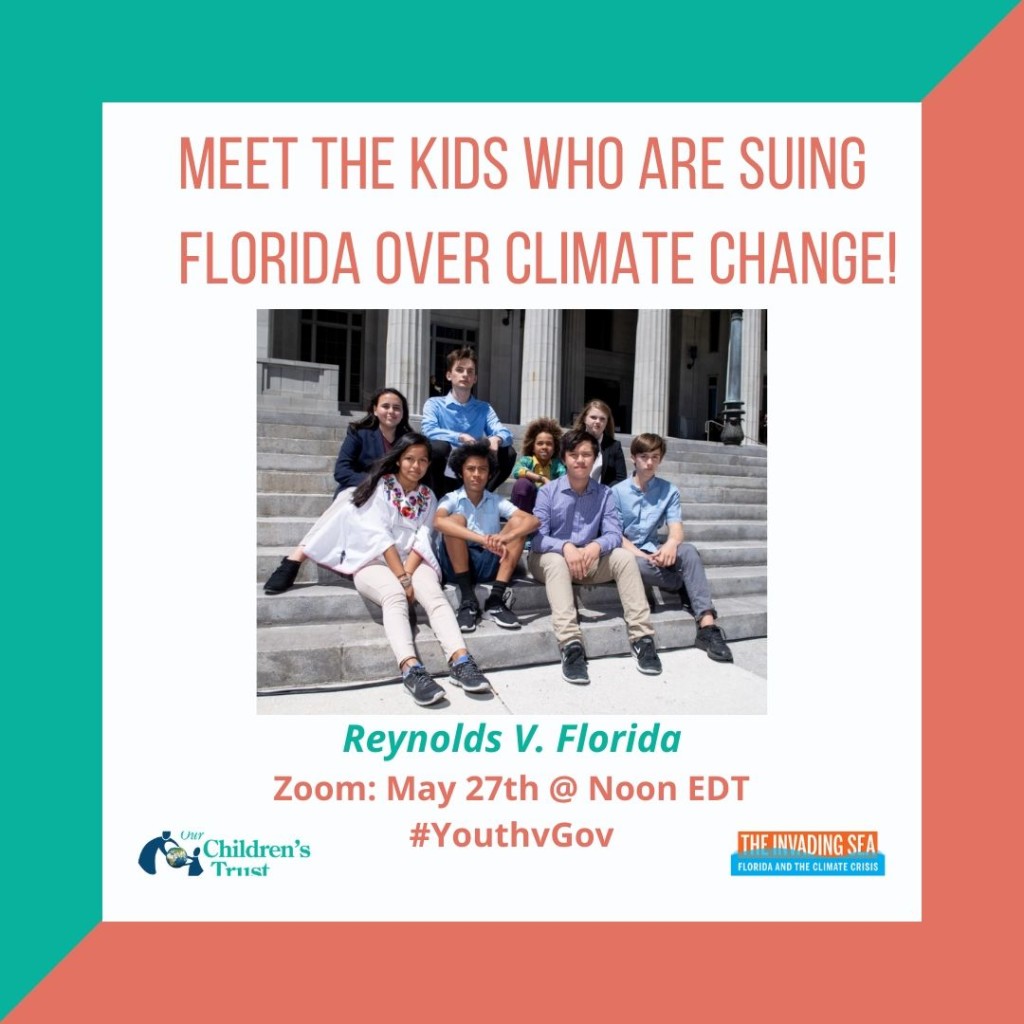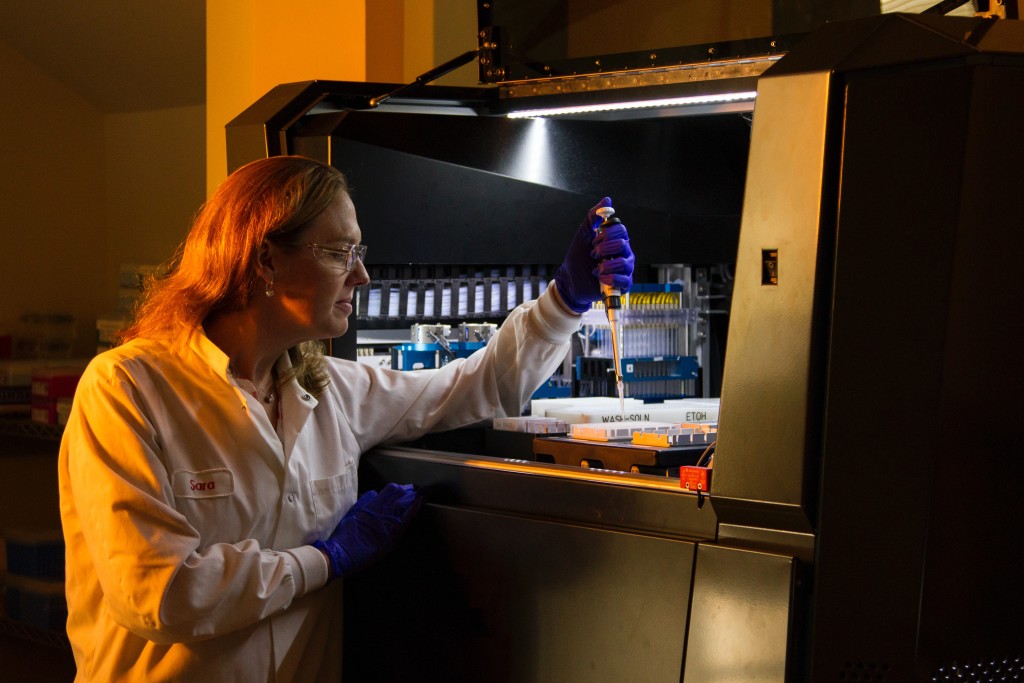
If you are in the Tampa, St. Petersburg or Sarasota region, I hope that you will consider joining me this Saturday, September 14th, at the University of South Florida’s St. Petersburg campus for its OPEN (Open Partnership Education Network) Conference where I am honored to be giving a key note lecture that starts at 1:00 pm and will be followed by a panel discussion that includes myself; esteemed attorney, Dick Jacobs; my fellow plaintiff, Valholly Frank and the City of St. Petersburg’s Sustainability Coordinator, Alexandria Hancock.
OPEN and USFSP have entitled the talk Why is a wave of youth advocates using the law to take action against climate change? and I am looking forward to discussing my climate change journey, my work to increase sustainable energy solutions here in The Sunshine State and why seven Floridian children and I are suing our state, Governor and others to demand they take aggressive action to protect our climate. I hope you can join us and be part of the discussion as we search for solutions to our climate crisis.
I am particularly excited that this event is in St. Petersburg. It’s not only one of the most beautiful cities in Florida, but like South Florida, where I live, it’s also one of the most fragile. That’s why I was so encouraged in August and September of 2017 when the City of St. Pete so passionately embraced my suggestion that it enact a solar power mandate like the historic law that I worked to have implemented in South Miami. Political pressures got in the way of a law being implemented in St. Pete at that time, but it remains my hope that the “Sunshine City”, as it’s called, will consider the idea again soon.
The reason that such local laws, much less our ongoing lawsuit, are so important is because we are running out of time.
Expert scientists tell us that we have about 12 years to have an impact on our warming climate before we reach the point of no return where the damage will cost places like St. Pete and Miami dearly.
And the annual reports from Florida’s utilities tell us why we can’t rely on our “friendly” local power company to solve the problem for us. Consider that my local power company, Florida Power & Light, obtained about 1% of its energy from sustainable solutions like solar power last year. And that’s after nearly 100 years of business in a place called “The Sunshine State”.
To learn more about how hard Florida’s utilities are fighting to protect their businesses and keep us from widely implementing solar power, I hope you will read the July New York Times article entitled Florida’s Utilities Keep Homeowners From Making the Most of Solar Power included at the end of this blog.
Here’s the good news: there is HOPE. Experts predict that 50% of Florida’s energy needs can be supplied by solar power by 2045 if we just start taking the topic seriously and demand that our governments and political leaders implement and enforce the laws that are needed to make that happen. I hope you will join me in helping make that happen and discussing all of this and much more on Saturday in St. Petersburg.

To learn more about the OPEN Conference please click here and to learn about this Saturday’s event please click here.
Florida’s Utilities Keep Homeowners From Making the Most of Solar Power
By Ivan Penn
ST. PETERSBURG, Fla. — Florida calls itself the Sunshine State. But when it comes to the use of solar power, it trails 19 states, including not-so-sunny Massachusetts, New Jersey, New York and Maryland.
Solar experts and environmentalists blame the state’s utilities.
The utilities have hindered potential rivals seeking to offer residential solar power. They have spent tens of millions of dollars on lobbying, ad campaigns and political contributions. And when homeowners purchase solar equipment, the utilities have delayed connecting the systems for months.
Solar energy is widely considered an essential part of addressing climate change by weaning the electric grid from fossil fuels. California, a clean energy trendsetter, last year became the first state to require solar power for all new homes.
But many utilities across the country have fought homeowners’ efforts to install solar panels. The industry’s trade organization, the Edison Electric Institute, has warned that the technology threatens the foundation of the power companies’ business.
In Florida, utilities make money on virtually all aspects of the electricity system — producing the power, transmitting it, selling it and delivering it. And critics say the companies have much at stake in preserving that control.
“I’ve had electric utility executives say with a straight face that we can’t have solar power in Florida because we have so many cloudy days,” said Representative Kathy Castor, a Democrat from the Tampa area. “I have watched as other states have surpassed us. I think that is largely because of the political influence of the investor-owned utilities.”
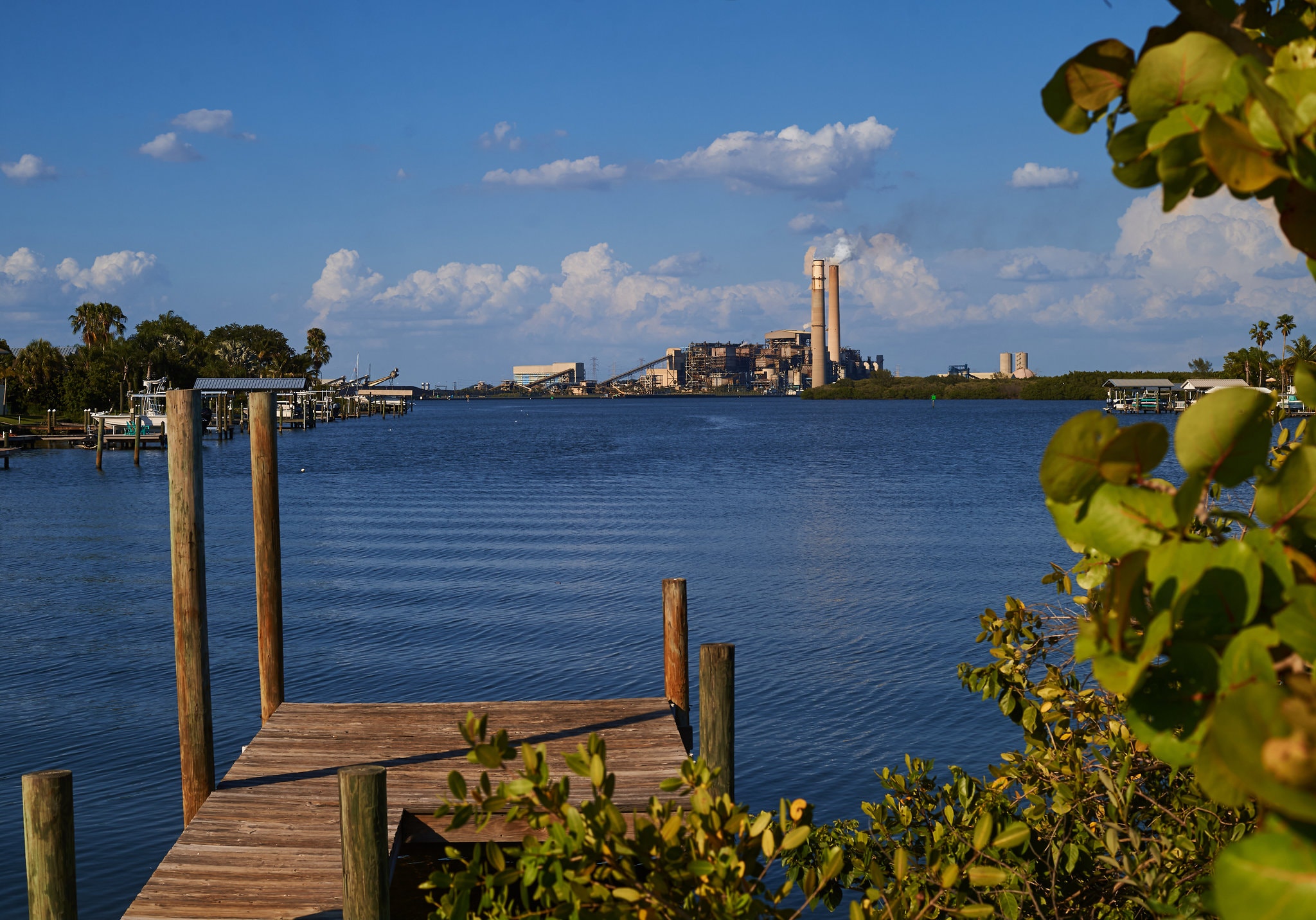
The state’s utilities have been expanding their own production of solar power. But Florida is one of eight states that prohibit the sale of solar electricity directly to consumers unless the provider is a utility. There is also a state rule, enforced by the utilities, requiring expensive insurance policies for big solar arrays on houses.
In 2009, a measure to require a certain amount of energy to be generated from renewable sources passed the State Senate but died in the House of Representatives when the utilities fought it. Solar proponents have been unable to find legislative traction for similar measures since then.
Mayor Rick Kriseman of St. Petersburg — the site of Duke Energy’s Florida headquarters — has argued for changing the way utilities are regulated so they would embrace more energy efficiency, residential solar power and energy storage. The companies essentially see the solar-equipped homeowner as a competitor, not a customer, he said.
“If your profits are based on consumption, where’s your incentive to reduce electricity use?” Mr. Kriseman said.
A Homeowner’s Struggle
Art Graham, chairman of the Florida Public Service Commission, which regulates Duke, Florida Power & Light and other investor-owned utilities, said simple economics was one reason the state had lagged in adopting renewable energy sources. Because Florida has kept electricity rates lower than those in the Northeast and California, he said, the cost savings for homeowners in switching to solar power are more limited.
But there are other obstacles. Timothy Nathan Shields is still stunned by the resistance he faced from Duke, the state’s second-largest utility, when he wanted to put solar panels on his home.
Mr. Shields, a 57-year-old retired nurse, wanted a system to cover the electricity needs of his 2,000-square-foot house in Largo, north of St. Petersburg, as well as the cost of charging his electric car. So a year ago he bought a setup twice the size of the average rooftop system from Sunrun, the leading residential solar company.
First, Mr. Shields said, a Duke representative told him that he would not benefit much from solar power because “it rains.” Then the utility told him that it wouldn’t save him any money. After he made a commitment to buy the system, Duke told him that it needed to be insured, citing its size and saying it could “harm the electric grid.”
So he bought a $1 million insurance policy costing $200 a year.
“It’s absurd,” said Brad Heavner, policy director for the California Solar and Storage Association, a trade group. “There’s no way you can justify that based on studies of the risk. I would call that an outrageous solar requirement.” He said he was not aware of such a rule in other states.
Sunrun installed Mr. Shields’s system in days. But Duke took two months to turn it on, forcing him to continue to pay electric bills of as much as $310 a month. He will pay $240 a month for the system for the next six years, when it will be paid off, plus a monthly fee of $11.57 to Duke for a grid connection.
“Every time I turned around, they would drag their feet,” Mr. Shields said. “They want you to think it’s hard and horrible and difficult.”
Randy Wheeless, a Duke spokesman, said that he regretted Mr. Shields’s experience, but that the company was simply following state requirements for larger home systems. The utility has been reducing connection times and adding as many as 750 rooftop solar customers a month, he said.
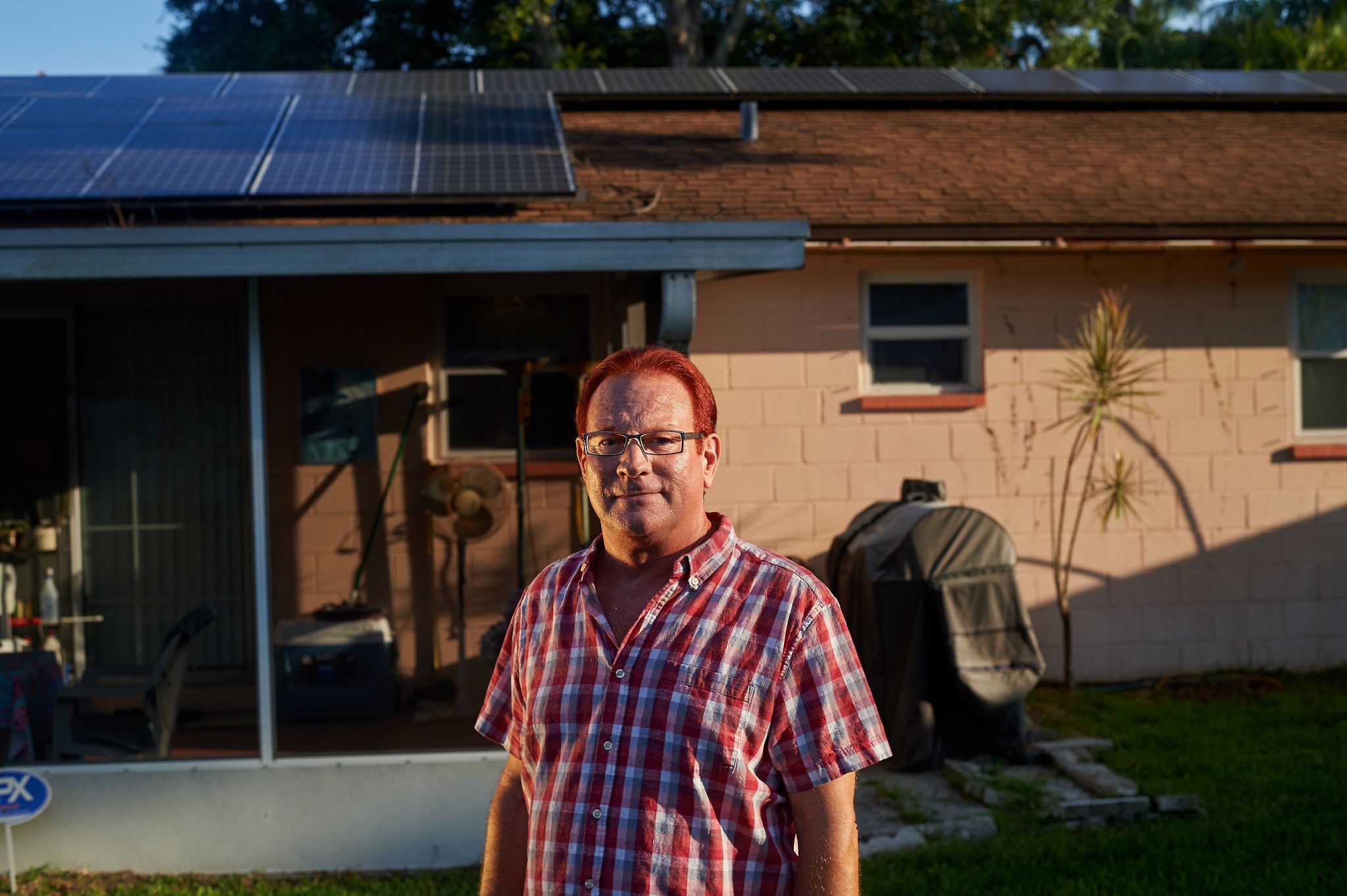
From the state’s perspective, Mr. Graham, the chief regulator, said, “I think we definitely could do some things differently” — like revising the policy that will cost Mr. Shields as much as $6,000 in insurance premiums over the life of his system, potentially more than 30 years.
Political Dollars
The experience of homeowners like Mr. Shields has largely been shaped by the utilities’ political spending.
From 2014 through the end of May, Florida’s four largest investor-owned utilities together spent more than $57 million on campaign contributions, according to an analysis by Integrity Florida, a nonprofit research organization, and the Energy and Policy Institute, a watchdog group. FPL, the state’s largest utility, accounted for $31 million of that total.
The utilities also hired enough lobbyists to have one for every two lawmakers in Tallahassee. From 2014 through 2017, the four companies spent $6 million on lobbying, Integrity Florida reported.
Sunrun broke through one of the barriers to rooftop solar last year when it won approval to lease solar panels to homeowners, a step subsequently taken by Vivint Solar and Tesla. But regulators stopped short of allowing solar companies to own the panels and simply sell the power directly to consumers, as they can in at least 27 states, the District of Columbia and Puerto Rico.
“There’s no solar competition happening,” said Abigail Ross Hopper, president of the Solar Energy Industries Association, a trade group.
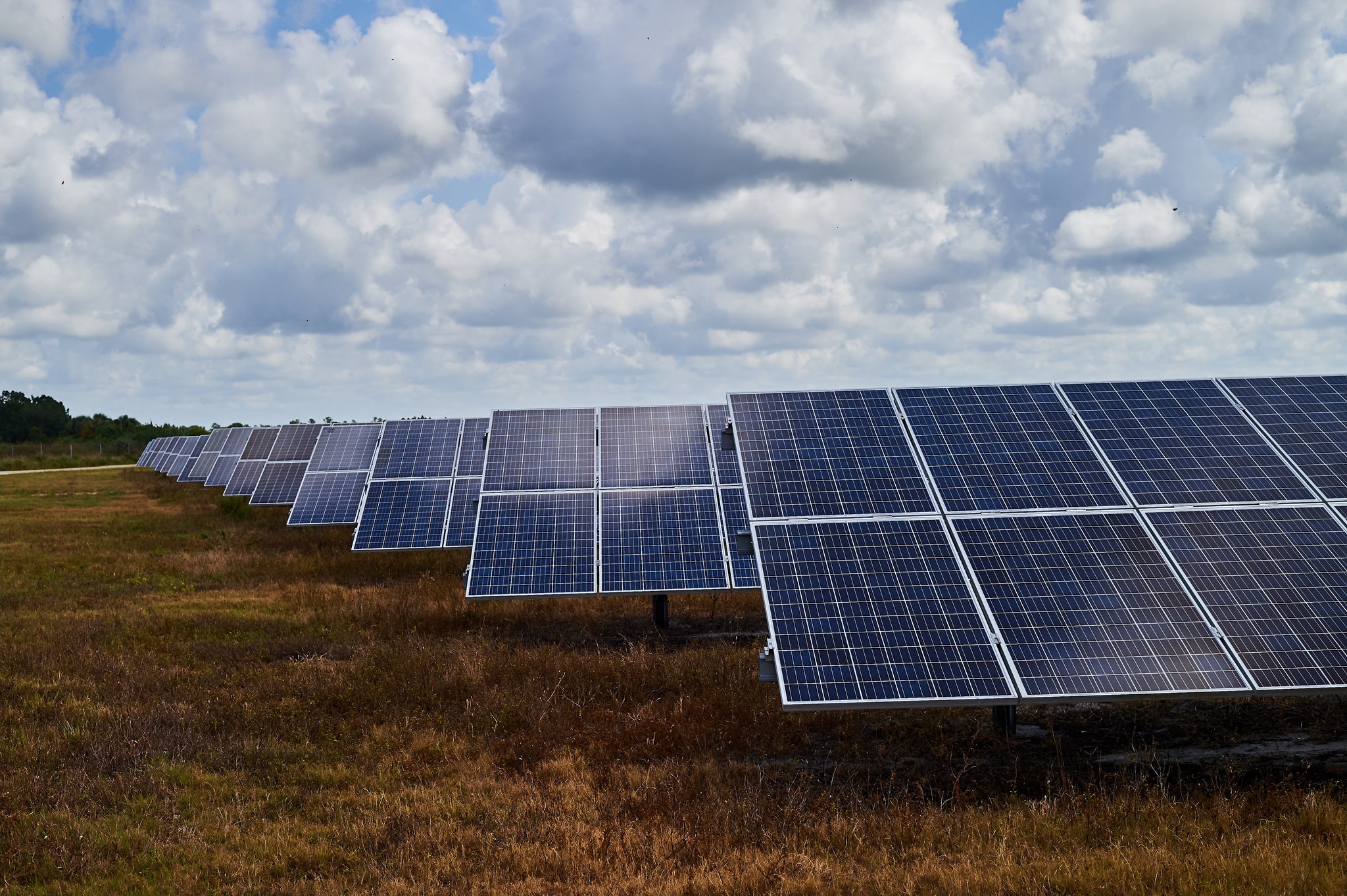
When it comes to the expansion of the utilities’ own solar arrays, Florida’s growth rate led the nation in the first quarter, and the state is positioned to hold that ranking for the next six years, according to the energy consulting firm Wood Mackenzie and the Solar Energy Industries Association.
Still, solar energy accounted for only 1 percent of electricity generation in Florida last year, far less than the 19 percent in California and nearly 11 percent in Vermont and Massachusetts, the association said. The state relies largely on natural gas, and several utilities get as much as a quarter of their power from coal.
A spokeswoman for Gov. Ron DeSantis defended the state’s clean energy efforts, saying in an email, “Florida’s renewable energy industry is growing rapidly.”
But solar advocates, rather than the utilities, have been the primary drivers for change at the consumer level.
An unlikely grass-roots coalition has emerged in Florida in the last five years to promote solar power — residential in particular — as environmentalists from the Southern Alliance for Clean Energy and the Sierra Club joined with groups like the Tea Party and the Christian Coalition.
While the groups’ rationales for joining the effort varied from environmental protection to a libertarian view of energy freedom, the issue united them against the utilities, which backed a ballot measure in 2016 to impose more fees on solar users and keep solar companies other than utilities out of the state.
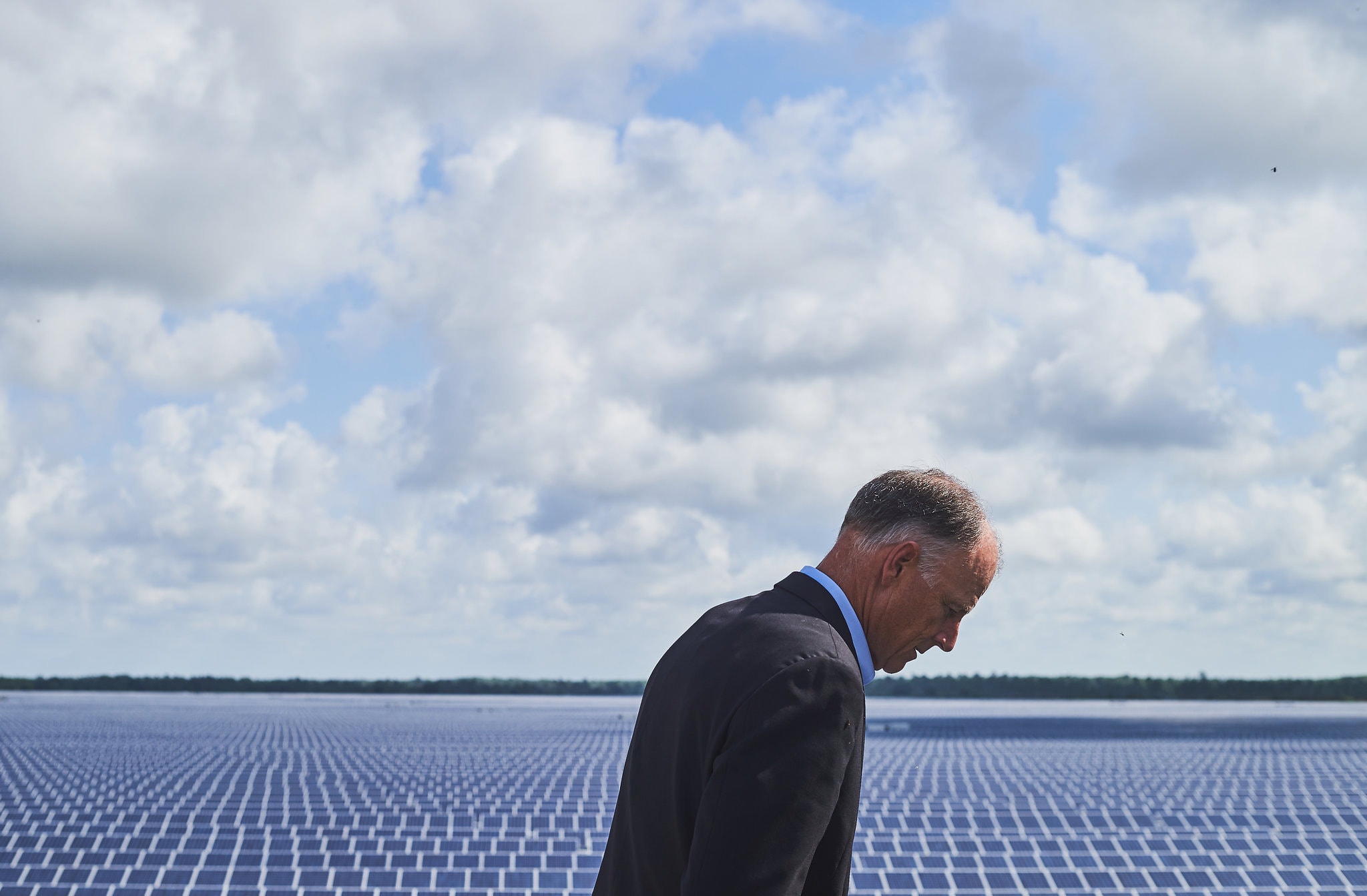
Although the utilities spent more than $20 million on the campaign, the measure was defeated. And the next year, the grass-roots effort persuaded lawmakers to exempt up to 80 percent of the value of solar installations from property taxes. It seemed a great victory for consumers — but the utilities also benefited, because it eased their tax burden on dozens or even hundreds of acres of solar farms.
“I would say that none of Florida’s utilities are enthusiastic about their customers’ deploying solar,” said Stephen Smith, executive director of the Southern Alliance for Clean Energy. “I am not surprised at the horror stories.”
A Vision for the Future
FPL points to its role in a particular bet on a solar future: Babcock Ranch, developed near Fort Myers by a company that extols it as the nation’s first sustainable town. The power company built a solar farm that largely supplies the town’s energy needs.
FPL announced four similarly sized projects in April, and Duke says it is also building farms that size.
“FPL has been working for many years to advance solar energy while keeping customer bills low,” said Mark Bubriski, a company spokesman. The utility said it plans to add enough solar capacity to power about 1.5 million homes and provide 20 percent of its total generation by 2030.
During legislative hearings in Tallahassee, Syd Kitson, the developer of Babcock Ranch, which will include 20,000 homes when fully developed, proposed building a town that could showcase the benefits of solar power.
“I’m an environmentalist who is a developer,” Mr. Kitson said. “It is the Sunshine State, so it made a lot of sense to us.”
But solar proponents feel the utilities need to be pushed further.
Scott McIntyre, chief executive of Solar Energy Management, a statewide leader in commercial solar power based in St. Petersburg, said the gains the state appeared to be making were little more than a facade.
“Florida is not going to do any type of energy policy that benefits consumers, not for a long time,” Mr. McIntyre said. “They just keep making the hurdles higher and higher.”
